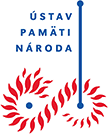On the Way towards the Communist Totality
The post-war period until the February 1948 is being euphemistically referred to as the era of so-called controlled democracy. Political pluralism was significantly restricted and reduced to parties of the National Front. The opposition could not exist and the political regime had authoritative features. Coming to terms with the criminal law of the previous regime and its crimes was a role of the particular retributive judicature, whereas many trials were politically motivated and determined. According to the Czechoslovak-Hungarian Agreement there was an exchange of the population between the two states. The elections in 1946 in Slovakia noticeably won the Democratic Party; however, nationwide it was the Communist Party of Czechoslovakia (KSČ) that won the elections. This Party began to build up its positions precisely in security and army sectors; it violated the law and began to persecute its opponents. In the autumn 1947 the Communist Party of Czechoslovakia evoked a political crisis and coup d’état in Slovakia. In February 1948 the same situation happened also in the Czechoslovak level of state leadership and it led to usurpation of the power by the Communist Party for over 40 years.

FABOK JAROSLAV
The life of Jaroslav Fabok was full of various obstacles. Even though he was only a young boy he had to provide for his family, because his father was an alcoholic. During the war he became involved in a resistance movement and the Slovak National Uprising, too. Later, he railed against the totalitarian era and its sharp practices. He worked as a secretary of the Democratic Party till February 1948 when he was arrested and imprisoned along with all the other Democratic Party officials. He worked hardly in uranium mines; however, it was a miracle that he managed to survive and give witness to his life.

KRUŠKO ŠTEFAN
The family of Štefan Kruško was among those, who trusted the false words about a better life in the Soviet Union. They became displaced persons, who immediately after their arrival in Ukraine lost their Czechoslovak citizenship without being aware of it and became citizens of the Soviet Union. Twenty years later, Štefan and his family managed to come back to Slovakia, where he still tries to help displaced compatriots with a great assistance from the Repatriates Coordination Committee in the Slovak Republic.
